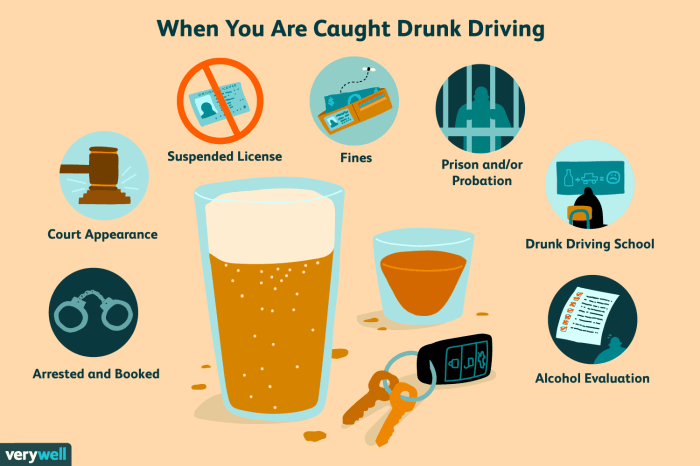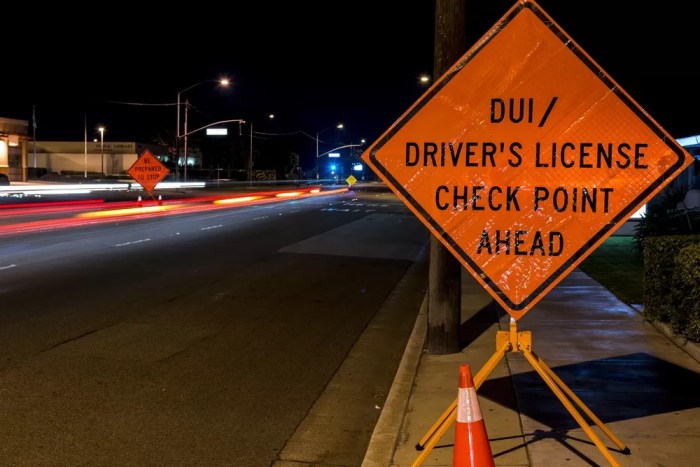Can you get a DUI for anything other than alcohol? This question delves into the complexities of driving under the influence (DUI) laws, exploring the various substances and conditions that can impair driving abilities and lead to legal consequences.
Beyond the common knowledge that alcohol consumption can result in a DUI charge, this article examines the lesser-known fact that a wide range of other substances, including prescription and over-the-counter medications, illegal drugs, and even certain medical conditions, can also constitute DUI offenses.
DUI Offenses Beyond Alcohol: Can You Get A Dui For Anything Other Than Alcohol

Driving under the influence (DUI) is not limited to alcohol consumption. Various other substances can impair driving abilities and lead to DUI charges.
These substances include:
- Illegal drugs (e.g., marijuana, cocaine, heroin)
- Prescription medications (e.g., opioids, benzodiazepines, antidepressants)
- Over-the-counter medications (e.g., cough suppressants, decongestants)
Even legal substances, when taken in excess or combined with other substances, can impair driving. It is important to be aware of the potential effects of all substances on driving abilities.
Marijuana and DUI
Marijuana use can significantly impair driving abilities, affecting coordination, reaction time, and judgment.
The legal status of marijuana varies by jurisdiction. In some areas, recreational marijuana use is legal, while in others it remains illegal.
Despite legalization, driving under the influence of marijuana is still illegal. Law enforcement uses various methods to detect marijuana impairment, including roadside sobriety tests and blood or urine tests.
Other Intoxicating Substances
In addition to alcohol and marijuana, other intoxicating substances can also lead to DUI charges. These include:
- Inhalants (e.g., glue, paint thinner)
- Solvents (e.g., acetone, benzene)
- Other drugs (e.g., LSD, PCP, MDMA)
These substances can have various effects on driving, impairing coordination, judgment, and reaction time.
Medical Conditions and DUI, Can you get a dui for anything other than alcohol
Certain medical conditions can mimic DUI symptoms, such as dizziness, drowsiness, and confusion.
Drivers with medical conditions that affect driving should be aware of their limitations and take appropriate precautions, such as adjusting medications or seeking alternative transportation.
It is important to consult with a healthcare professional to determine the potential impact of medical conditions on driving abilities.
Legal Procedures and Penalties
The legal procedures involved in a DUI arrest for non-alcohol substances are similar to those for alcohol-related DUIs.
Penalties for DUI convictions involving non-alcohol substances can vary depending on the jurisdiction and the specific substance involved.
Consequences may include fines, license suspension or revocation, and jail time.
Essential FAQs
Can you get a DUI for prescription medications?
Yes, driving while under the influence of prescription medications that impair driving abilities, such as opioids, benzodiazepines, and certain antidepressants, can lead to a DUI charge.
Can you get a DUI for using marijuana?
Yes, driving while under the influence of marijuana can result in a DUI charge in most jurisdictions. The legal limits and penalties vary depending on the specific laws in each state or country.
Can you get a DUI for medical conditions?
In some cases, certain medical conditions, such as epilepsy or diabetes, can cause symptoms that mimic DUI, such as impaired coordination or confusion. However, drivers with these conditions may have legal defenses available to avoid DUI charges.

